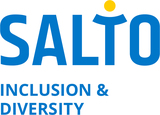Murru Prison project in Estonia
In the Murru Prison near Tallinn in Estonia six young people -serving long sentences between eight and seventeen years - meet regularly to work on their project 'Why have things turned out this way?' The idea for the project came from the young prisoners and aims to bring together young prisoners and youngsters at risk of offending.
The young men work on a video in which they tell their life-story. In an open way they share their life-experiences as an example and as a warning for those kids who might be in a period of their life where they could make the same kind of choices as the young prisoners did and which brought them finally in Murru.
The project is a new experience both for the boys in the core group but also for the social worker and psychologist of Murru prison who support the boys in implemention of project. They were surprised about how enthusiastic and motivated the young prisoners were to get involved and it is of even greater importance as the opportunities for free-time activities and non -formal learning through youth activities are anyway quite limited in prison
This project is a Youth Initiative supported by the Estonian National Agency.
^^ top ^^
Training prison workers
At this moment there are already more than ten Youth Initiative projects running in prisons in Estonia. Some of the young inmates who had participated in these initiatives have been released by now and are still in contact with the YiA programme. For example, some of them have promoted their project experience to other young people, one boy participated in short-term European Voluntary Service in UK.
These projects are results of the national training programme launched by the Estonian National Agency in 2005 to support development of skills in working with young people and in project management in this very specific context - in prisons. During this long-term training programme, people working in prisons were first to be trained to use European youth programme as a tool for their work with young inmates.
The roots of the idea are to be found in the experiences of the European YOUTH programme in Estonia so far, which had proven relatively good results in inclusion of young people with special needs as well as those with background of alcohol and drug abuse. There had also been projects involving young people sentenced to probationary supervision, for example.
At the same time, in youth field on national level the need to support professional development of people working with youth at risk has been clearly recognised in order to guarantee better impact of youth work. So the idea was born for a long-term training where prison staff can gain both theoretical knowledge but also develop their skills through starting practical implementation of real projects in their work place, in co-operation with young inmates.
Opportunities within European youth programme are wide and varied but of course, the juvenile detainees have their limits to to communicate with the outside world and for this reason first of all the Youth Initiative projects (action 1.2. of the Youth In Action Programme) were taken as a basis : projects that groups of young people could start themselves involving their peers inside prison. To organise discussion groups or workshops, graffiti competitions reflecting subjects that mean something to them etc. The main point was that projects should be based on the needs and interests of the young people, allowing the workers supporting the project to provide feedback to the detainees' activities and to support their positive learning experiences - and thus their self-esteem.
As a preparation for the training course, introductory visits were made to all participating prisons. Also the participants started to approach those young people in whom they saw the potential to get involved in future youth project.
The first phase of the training course focused on setting the scene for future co-operation: getting to know each other, intro to the European youth programme Programme as well as development of initial project ideas.
Based on the needs expressed by the participants, the second phase predominantly looked at youth work methodology, including practical workshops to develop skills in forum theatre, creative writing and other expressive techniques for work with young offenders.
The final phase focused on evaluation of project practices so far as well as development of future follow-up actions.
^^ top ^^
Ülly Enn from the Estonian National Agency:
'Amongst young people in prisons there are many who look back at their life and are motivated to change and develop themselves through youth projects. The opportunities for this are otherwise currently rather limited in prisons and participating in a youth project provides young people with opportunities to communicate, to learn about project topics and project management, build their cooperative skills and much more. It also often represents the first experience these kids have of contributing to a project on their own initiative.
Given the predominantly preventative objectives of youth work as a general approach, it is a shame that information and the chance to participate failed to reach these kids while they were still at liberty. But now, being in prison and meeting their first opportunity to make something of their ideas and to enjoy it and gain valuable experience from it for the future, it may help them to develop their coping skills remarkably. And thus the training project and its results have shown that not only for these young people but also for the youth work there is room for further developments and expansion to those areas where the youth work is not yet that actively present.'
- If you are interested in the experience of this training programme and its results, please have a look at "Youth work in prisons?" at http://euroopa.noored.ee/node/404
- You can contact the Estonian National Agency at www.noored.ee
^^ top ^^
Downloads
The following downloads are available:
- No Offence - projects with (ex) offenders - 2010 update
How to organise (international) youth projects with young offenders, ex-offenders and young people at risk of offending or currently in prison - despite some limitations. Based on SALTO TC No Offence 2006.




